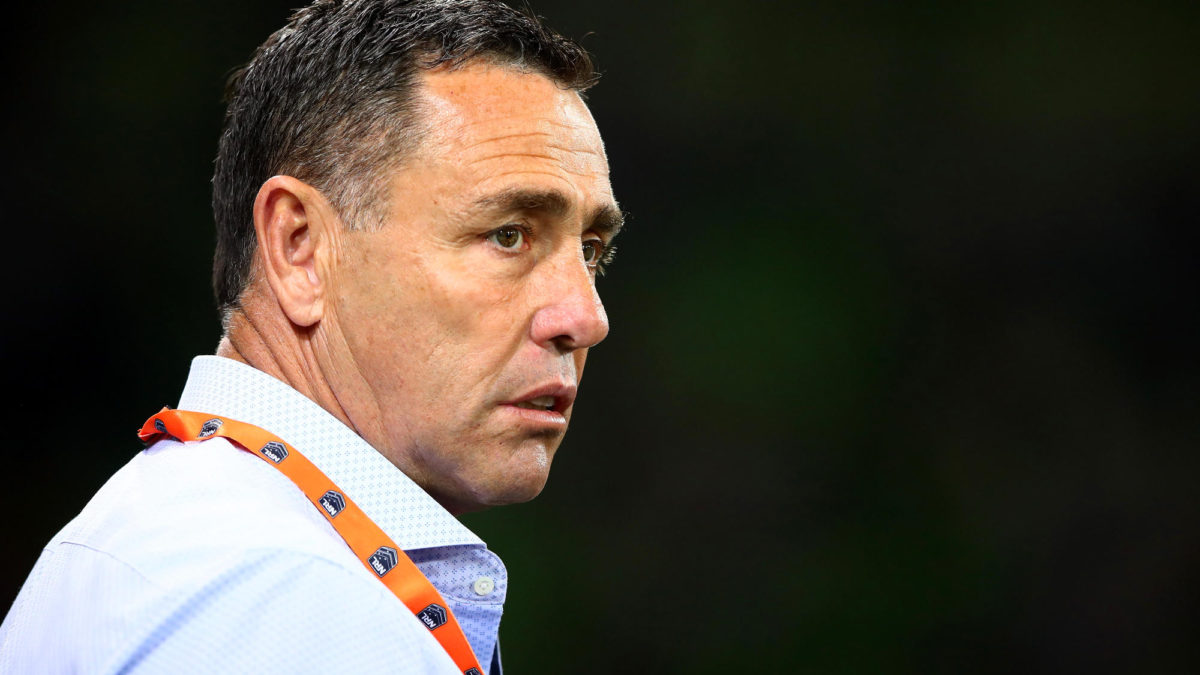
In a call affecting companies and insurers throughout Massachusetts, the Department of Insurance coverage has ordered a considerable relief in employees’ repayment insurance coverage charges of 14.6% beginning July 1, 2024. Whilst the volume of relief might say all of it, this newsletter delves into the complicated ruling, analyzing the important thing components that ended in this surprising resolution.
Abstract of Choice and Fee Relief
On June 21, 2024, the Massachusetts Department of Insurance coverage issued a last resolution on employees’ repayment insurance coverage charges. The verdict disapproved the 2023 Submitting submitted through the Staff’ Reimbursement Ranking and Inspection Bureau of Massachusetts (WCRIBMA) for charges meant to take impact on July 1, 2024.
The WCRIBMA had to begin with proposed an 8.30% statewide reasonable lower, later revised to 7.6%. Then again, after a radical exam, the Department concluded that the proposed classifications and premiums may just no longer be authorized as “no longer over the top, insufficient, or unfairly discriminatory” as required through state legislation.
In a transfer that may considerably have an effect on companies around the state, the Listening to Officials exercised their authority to reserve a statewide lower in reasonable employees’ repayment insurance coverage charges of 14.6%, which the Appearing Commissioner, Kevin Beagan, authorized. This surprising ruling just about doubled the relief proposed through the WCRIBMA.
Creation and Procedural Historical past
The street to this resolution started on December 22, 2023, when the WCRIBMA submitted its submitting for a employees’ repayment basic fee revision. The proposed charges had been meant to take impact on July 1, 2024, marking the start of a posh regulatory procedure.
The Commissioner of Insurance coverage (“Commissioner”) designated Jean F. Farrington, Esq. and Matthew A. Taylor, Esq. as presiding officials (“Listening to Officials”) for the speed hearings at the WCRIBMA submitting.
A public remark listening to used to be scheduled for February 7, 2024. This listening to equipped a discussion board for more than a few stakeholders, together with the WCRIBMA, the State Ranking Bureau (SRB), and the Legal professional Common’s workplace (AGO), to provide their perspectives and issues in regards to the proposed charges.
The method persisted with cross-examinations of witnesses from the WCRIBMA, which came about from March 19 to 21. Therefore, the SRB and AGO submitted their advisory filings on April 3, 2024, adopted through additional cross-examinations in their respective witnesses. The WCRIBMA then had the chance to put up a rebuttal submitting on Might 10, with further cross-examinations on Might 16. The method concluded with surrebuttals from the SRB and AGO on Might 23 and ultimate cross-examinations on Might 29.
This intensive procedural historical past underscores the thorough and deliberative nature of the rate-setting procedure in Massachusetts, making sure that every one views are regarded as ahead of a last resolution is reached.
Statutory Framework
The verdict is grounded within the statutory necessities set forth in Massachusetts Common Rules, Bankruptcy 152, §53A. This legislation establishes the framework for approving employees’ repayment insurance coverage charges within the Commonwealth.
Key provisions of the statute require that:
1. Any insurance coverage corporate writing employees’ repayment insurance coverage in Massachusetts will have to report its chance classifications and premiums with the Commissioner of Insurance coverage.
2. The Commissioner will have to habits a listening to to resolve whether or not the proposed classifications and charges aren’t over the top, insufficient, or unfairly discriminatory for the hazards they duvet.
3. The proposed charges will have to fall inside a spread of reasonableness.
4. The Commissioner will have to no longer approve classifications or charges that come with dividends or different bills returned to policyholders, bills exceeding the submitting insurer’s wishes, or unreasonable fee allowances.
5. The Commissioner will have to in finding that insurers make use of applicable charge keep watch over systems and strategies.
Importantly, the filer (on this case, the WCRIBMA) has the weight of evidence to reveal that its proposed charges meet those statutory requirements. The Listening to Officials sitting as designees of the Commissioner have the authority to investigate each and every part of the speed submitting and might reject the proposed charges if any part fails to fulfill the statutory usual.
Contested Problems
The verdict highlights a number of key spaces of rivalry that ended in the disapproval of the WCRIBMA’s submitting. Those problems shape the core of the Listening to Officials’ reasoning and supply perception into the complexities of insurance coverage rate-setting.
1. Loss Construction Problems
A central dispute within the resolution revolves round calculating loss building components (LDFs). LDFs are the most important in estimating without equal worth of employees’ repayment claims, as those claims regularly take years to succeed in their ultimate settled worth.
The WCRIBMA proposed the usage of handiest knowledge from 2021 and 2022 to calculate LDFs for indemnity (misplaced time) claims, aside from 2020 knowledge because of the abnormal instances of the COVID-19 pandemic. Then again, the Listening to Officials discovered this way unreasonable, pointing out that it fails to seize the whole ancient file of loss building.
The verdict argues that together with 2020 knowledge would offer a extra whole image, encompassing pre-COVID years (2018-2019), the height COVID yr (2020), and the restoration years (2021-2022). Consequently, the Listening to Officials really useful the usage of a five-year reasonable (2018-2022) for calculating LDFs.
This adjustment is essential for the reason that WCRIBMA’s way, the usage of handiest 2021-2022 knowledge, produced upper LDFs, which might have led to upper estimated long term losses and, as a result, upper charges. By way of together with the decrease 2020 values in a five-year reasonable, the ensuing LDFs are anticipated to be decrease, contributing to the total fee lower.
2. Underwriting Benefit Provision
Any other primary level of rivalry used to be the WCRIBMA’s proposed adjustments to the method for calculating the Underwriting Benefit Provision (UPP). The UPP is designed to offer insurers with a good and cheap fee of go back.
Traditionally, the UPP has been calculated the usage of an Interior Fee of Go back (IRR) type in response to industry-wide knowledge for casualty insurers. Then again, the WCRIBMA proposed a brand new method weighted through marketplace proportion, focusing particularly on insurer teams writing employees’ repayment in Massachusetts.
The Listening to Officials discovered that the WCRIBMA didn’t reveal that this new way used to be extra suitable than the longstanding industry-wide type. The verdict famous a number of problems with the proposed method:
– The pattern team utilized by the WCRIBMA contained incomplete knowledge for plenty of corporations.
– The WCRIBMA’s estimation of the price of debt used to be no longer supported through proof.
– The brand new way for calculating asset allocation perceived to artificially cut back the total asset fee of go back.
The Listening to Officials concluded that the WCRIBMA didn’t meet its burden of proving that the brand new method would be certain charges comply with the statutory requirements. This discovering considerably impacted the overall fee resolution, because the UPP is a key part in figuring out total insurance coverage charges.
3. Calculating Charges for Sure Industry Classifications
The verdict addressed a particular factor associated with Magnificence Code 9033, which covers housing government. This classification is exclusive as a result of a unmarried Self-Insurance coverage Crew (SIG), Massachusetts NAHRO Self Insurance coverage Crew, Inc. (NAHRO), conducts roughly 85% of all trade inside this code.
The Commissioner designated Magnificence Code 9033 as a “state particular” code, which means that using Countrywide Information as a supplement to credibility is beside the point for this classification. As a substitute, the verdict ordered using SIG Information from NAHRO because the supplement to credibility for Magnificence Code 9033 in long term fee filings.
This resolution used to be in response to the discovering that the ancient variations between the Massachusetts Information and the Countrywide Information for this category code had been vital sufficient to warrant particular remedy. The Listening to Officials rejected the WCRIBMA’s issues about knowledge high quality and auditability, discovering them inadequate to exclude using NAHRO’s knowledge.
4. F-Magnificence Fee Omission
The Listening to Officials’ resolution took factor with the WCRIBMA’s omission of fee calculations for F-classes, which duvet staff regulated underneath the US Longshore and Harbor Staff Reimbursement Act. The WCRIBMA had proposed no trade to the F-class charges from the ones authorized to be used as of July 1, 2023.
The Listening to Officials discovered this omission unacceptable, noting that it will successfully deal with 2023 charges for F-class employers whilst all different lessons won a fee lower. The verdict states that the WCRIBMA didn’t reveal that the 2023 F-class charges aren’t over the top or unfairly discriminatory for 2024.
5. Information Changes
The verdict additionally addressed a number of knowledge changes made through the WCRIBMA in its submitting. Particularly, the Listening to Officials discovered the WCRIBMA’s exclusion of AIG’s fee and brokerage knowledge from the expense calculation to be unreasonable.
The WCRIBMA had excluded this information at the grounds that AIG’s fee and brokerage ratios had been “outliers” in comparison to the remainder of the {industry}. Then again, the Listening to Officials discovered that the WCRIBMA failed to provide an explanation for this exclusion satisfactorily, specifically for the reason that AIG’s knowledge used to be in line with its personal ancient traits.
The verdict orders the recovery of AIG’s knowledge to the set used to increase the industry-wide expense provision, which is anticipated to lead to a decrease total fee indication.
Moreover, the verdict addressed the problem of swing limits, which cap the allowable vary of fee adjustments through {industry} team. Whilst the WCRIBMA proposed keeping up its +/- 20% swing restrict, and the AGO advised decreasing it to +/- 15%, the Listening to Officials declined to approve both proposal. As a substitute, the verdict advised that averaging not too long ago stipulated values would produce a consequence that higher displays the ancient file.
Value Containment
The most important side of the speed approval procedure is the review of insurers’ charge containment efforts. The verdict discovered that the WCRIBMA’s Value Containment Submitting used to be enough to strengthen a discovering that insurer charge keep watch over systems are efficient.
The submitting integrated survey responses from the 10 biggest NAIC insurer teams writing employees’ repayment insurance coverage in Massachusetts. Those responses detailed more than a few charge keep watch over measures, together with diversifications made all over the COVID-19 pandemic.
Insurers reported vital shifts to digital operations, affecting claims processing, clinical process approvals, and conversation techniques. Many of those adjustments, similar to higher use of telemedicine and digital inspections, were retained post-pandemic because of their cost-saving advantages.
The verdict concludes that those diversifications have allowed insurers to deal with their stage of pre-COVID operations whilst concurrently demonstrating charge financial savings via digital strategies.
The Ultimate Ruling of the Listening to Officials
The 2 listening to officer’s ultimate ruling offering for the 14.6% relief of charges mentioned:
We discover that, at the file of this continuing, the WCRIB’s 2023 Submitting for charges efficient July 1, 2024, incorporates proposed classifications or premiums that can’t be authorized based on M.G.L. c.152 §53A (2) as “no longer over the top, insufficient, or unfairly discriminatory for the hazards to which they respectively follow, and inside a spread of reasonableness.” We, due to this fact, disapprove the Submitting on this subject. As well as, as each and every of the events has advocated for a fee relief, we will have to conclude that the charges now in impact are over the top and workout our authority underneath M.G.L. c.152 §53A (8) to reserve a statewide lower in reasonable employees repayment insurance coverage charges of 14.6%.
Long term Submitting Date
The verdict directs the WCRIBMA to put up its subsequent submitting in December 2024 for charges to take impact on July 1, 2025. This continues the hot follow of annual fee filings, making sure common evaluation and adjustment of employees’ repayment insurance coverage charges in Massachusetts.









